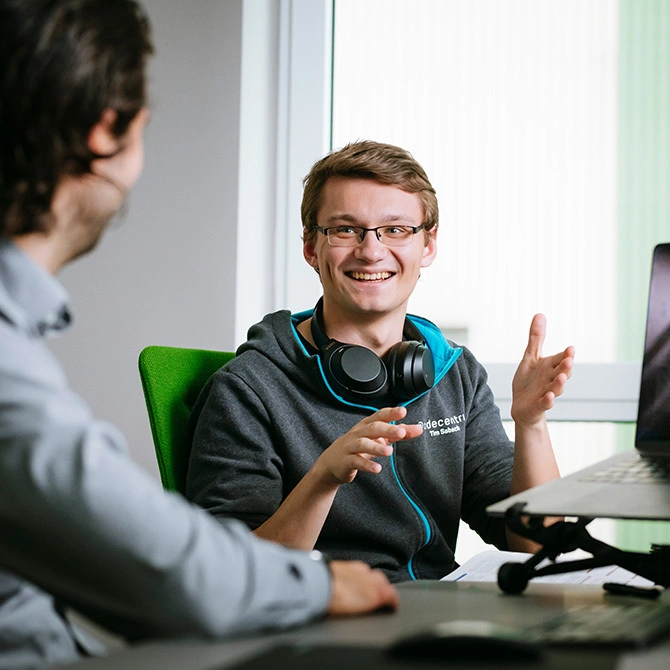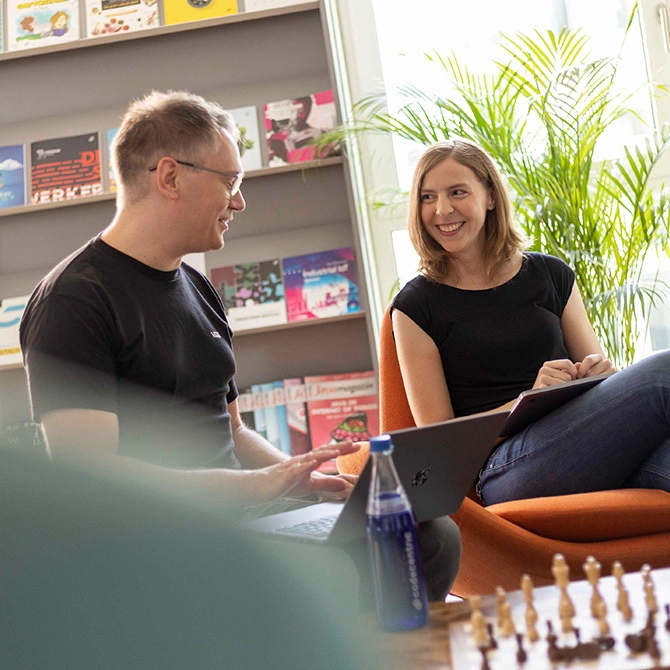Top-Themen
Du suchst Unterstützung in anderen Themengebieten?
Unsere Expert*innen kennen sich in vielen Branchen und Themen aus und unterstützen dich mit einer ganzheitlichen IT-Beratung.
Individuelle Kundenprojekte...
Unsere Expert*innen haben bereits zahlreichen Unternehmen dabei geholfen, ihr Geschäft langfristig zu digitalisieren und zu beschleunigen. Finde Parallelen zu deinen Herausforderungen.
... und eine Arbeitsweise für nachhaltigen Mehrwert.
Wir arbeiten nicht stumpf Tickets ab, sondern hinterfragen und fordern heraus – damit wir gemeinsam nachhaltig Mehrwert für dich schaffen.
Kundenberatung
Nutze auch du unser IT-Wissen für die Herausforderungen deiner IT-Abteilung. Unsere Consultants setzen sich mit dir unverbindlich zusammen, um deine Anforderungen zu besprechen und Lösungswege zu skizzieren.





Wissen teilen in einer starken Community
codecentric in Zahlen
2004
gegründet in Solingen
13
Standorte in Deutschland
999+
erfolgreiche Projekte
550+
Mitarbeiter*innen
Jetzt unseren Newsletter abonnieren
Alles Wissenswerte auf einen Klick: Unser Newsletter bietet dir die Möglichkeit, dich ohne großen Aufwand über die aktuellen Themen bei codecentric zu informieren.
Gemeinsam bessere Projekte umsetzen.
Wir helfen deinem Unternehmen.
Du stehst vor einer großen IT-Herausforderung? Wir sorgen für eine maßgeschneiderte Unterstützung. Informiere dich jetzt.
Hilf uns, noch besser zu werden.
Wir sind immer auf der Suche nach neuen Talenten. Auch für dich ist die passende Stelle dabei.